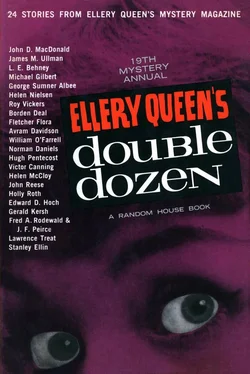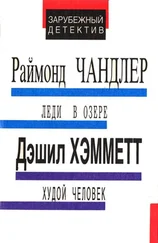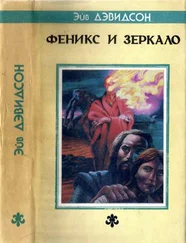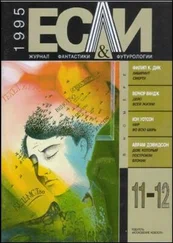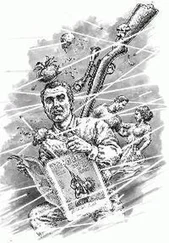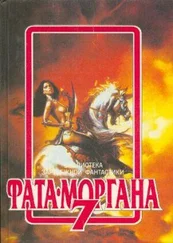And there are other differences: “The Crime of Ezechiele Coen” is a novelet — also a departure for Mr. Ellin; and the approach, background, characters, mood, even the special tenderness of this story, are new and shining facets of Stanley Ellin’s impressive talent.
Mystery Writers of America judged Stanley Ellin’s “The Crime of Ezechiele Coen” to be one of the three best mystery short stories published during 1963. Since two of the three stories were not tales of detection, it follows that MWA considered “The Crime of Ezechiele Coen” the best detective short story of the year.
* * *
Before the disenchantment set in, Noah Freeman lived in a whirl of impressions. The chaotic traffic. The muddy Tiber. The Via Veneto out of Italian movies about la dolce vita. The Fountain of Trevi out of Hollywood. Castel Sant’ Angelo out of Tosca, Rome.
“Rome?” Pop had said. “But why Rome? Such a foreign place. And so far away.”
True. But to old Pop Freeman, even Rockland County, an hour from New York, was far away, and his two weeks of vacation there every summer an adventure. And, in fact, it was unlikely that Pop had been too much surprised at his son’s decision to go journeying afar. After all, this was the son who was going to be a doctor — at the very least a teacher — and who had become, of all things, a policeman.
“A policeman in the family,” Pop would muse aloud now and then. “A detective with a gun in the family like on TV. My own son. What would Mama say if she ever knew, may she rest in peace?”
But, Noah had to admit, the old man had been right about one thing, Rome was far, far away, not only from New York, but also from the blood-quickening image of it instilled in young Noah Freeman when he was a schoolboy soaking himself in gaudy literature about Spartacus and Caesar and Nero. And the Pensione Alfiara, hidden away in an alley off Via Arenula, was hardly a place to quicken anyone’s blood. It took an ill wind to blow an occasional American tourist there. In Noah’s case, the ill wind was the cab driver who had picked him up at Fiumicino airport and who happened to be Signora Alfiara’s brother-in-law.
It was made to order for disenchantment, the Pensione Alfiara. Granting that it offered bargain rates, its cuisine was monotonous, its service indifferent, its plumbing capricious, and its clientele, at least in early March, seemed to consist entirely of elderly, sad-eyed Italian villagers come to Rome to attend the deathbed of a dear friend. Aside from Signora Alfiara herself and the girl at the portiere’s desk, no one on the scene spoke English, so communication between Noah and his fellow boarders was restricted to nods and shrugs, well meant, but useless in relieving loneliness.
Its one marked asset was the girl at the portiere’s desk. She was tall and exquisite, one of the few really beautiful women Noah had yet encountered in Rome, because among other disillusionments was the discovery that Roman women are not the women one sees in Italian movies. And she lived behind her desk from early morning to late at night as if in a sad, self-contained world of her own, skillful at her accounts, polite, but remote and disinterested.
She intrigued him for more than the obvious reasons. The English she spoke was almost unaccented. If anything, it was of the clipped British variety, which led him to wonder whether she might not be a Briton somehow washed up on this Roman shore. And at her throat on a fine gold chain was a Mogen David, a Star of David, announcing plainly enough that she was Jewish. The sight of that small, familiar ornament had startled him at first, then had emboldened him to make a friendly overture.
“As a fellow Jew,” he had said smilingly, “I was wondering if you—” And she had cut in with chilling politeness, “Yes, you’ll find the synagogue on Lungotevere dei Cenci, a few blocks south. One of the landmarks of this part of Rome. Most interesting, of course” — which was enough to send him off defeated.
After that, he regretfully put aside hopes of making her acquaintance and dutifully went his tourist way alone, the guide book to Rome in his hand, the Italian phrase book in his pocket, trying to work up a sense of excitement at what he saw, and failing dismally at it. Partly, the weather was to blame — the damp, gray March weather which promised no break in the clouds overhead. And partly, he knew, it was loneliness — the kind of feeling that made him painfully envious of the few groups of tourists he saw here and there, shepherded by an officious guide, but, at least, chattering happily to each other.
But most of all — and this was something he had to force himself to acknowledge — he was not a tourist, but a fugitive. And what he was trying to flee was Detective Noah Freeman, who, unfortunately, was always with him and always would be. To be one of those plump, self-satisfied, retired businessmen gaping at the dome of St. Peters, that was one thing; to be Noah Freeman was quite another.
It was possible that Signora Alfiara, who had a pair of bright, knowing eyes buried in her pudding face, comprehended his state of mind and decided with maternal spirit to do something about it. Or it was possible that having learned his occupation she was honestly curious about him. Whatever the reason, Noah was deeply grateful the morning she sat down at the table where he was having the usual breakfast of hard roll, acid coffee, and watery marmalade, and explained that she had seen at the cinema stories about American detectives, but that he was the first she had ever met. Very interesting. And was life in America as the cinema showed it? So much shooting and beating and danger? Had he ever been shot at? Wounded, perhaps? What a way of life! It made her blood run cold to think of it.
The Signora was unprepossessing enough in her bloated shapelessness, her shabby dress and worn bedroom slippers; but, at least, she was someone to talk to, and they were a long time at breakfast settling the question of life in America. Before they left the table Noah asked about the girl at the portiere’s desk. Was she Italian? She didn’t sound like it when she spoke English.
“Rosanna?” said the Signora. “Oh, yes, yes, Italian. But when she was a little one — you know, when the Germans were here — she was sent to people in England. She was there many years. Oh, Italian, but una Ebrea, a Jew, poor sad little thing.”
The note of pity rankled. “So am I,” Noah said.
“Yes, she has told me,” the Signora remarked, and he saw that her pity was not at all for the girl’s being una Ebrea. More than that, he was warmed by the knowledge that the beautiful and unapproachable Rosanna had taken note of him after all.
“What makes her sad?” he asked. “The war’s been over a long time.”
“For some, yes. But her people will not let her forget what her father did when the Germans were here. There was the Resistance here, the partisans you know, and her father sold them to the Germans. So they believe. Now they hate her and her brother because they are the children of a Judas.”
“What do you mean, so they believe? Are they wrong about her father?”
“She says they are. To her, you understand, the father was like a saint. A man of honor and very brave. That might be. But when the Germans were here, even brave men were not so brave sometimes. Yet, who am I to say this about him? He was the doctor who saved my life and the life of my first son when I gave birth to him. That is why when the girl needed work I paid back a little of my debt by helping her this way. A good bargain, too. She’s honest, she works hard, she speaks other languages, so I lose nothing by a little kindness.”
“And what about her brother? Is he still around?”
Читать дальше
